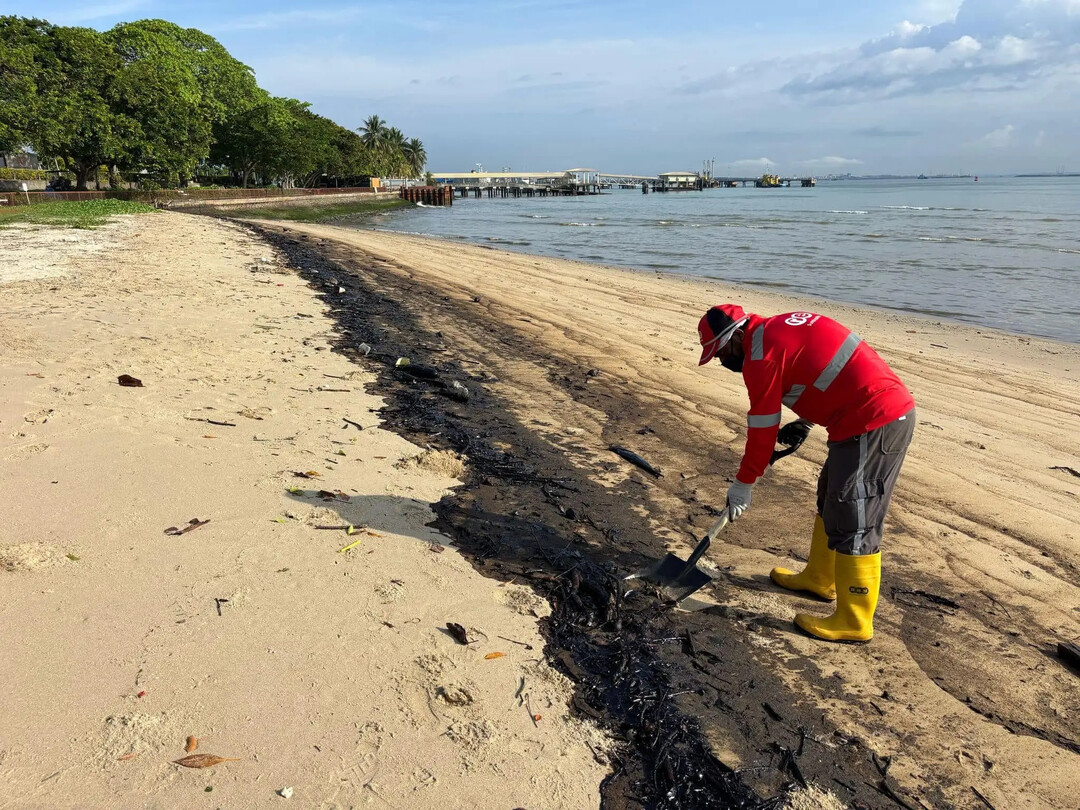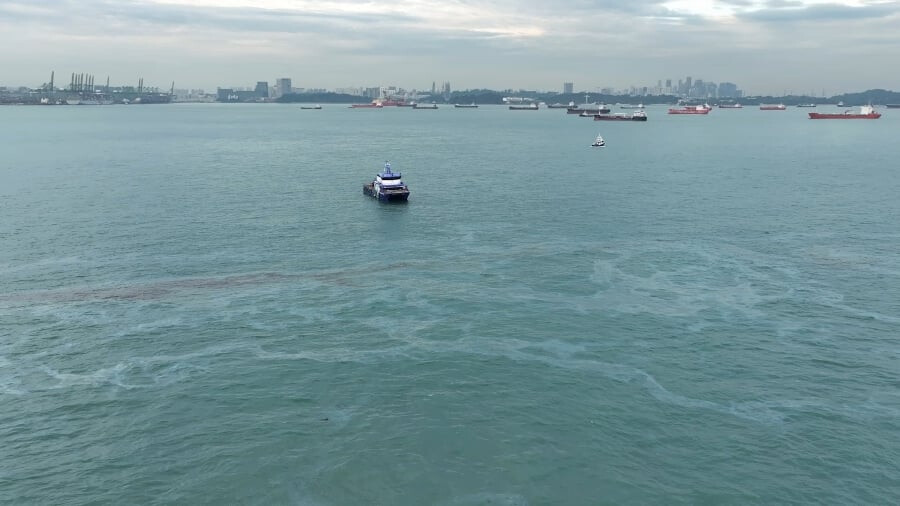
Singapore - Singapore's National Parks Board (NParks) announced yesterday the reopening of the Chek Jawa Wetlands at Pulau Ubin to the public, which had been closed following an oil spill last Thursday.
In a statement, NParks said, "To prevent further impact, remaining oil residue in the affected areas of Chek Jawa Wetlands will be left to degrade naturally, and we will continue to monitor biodiversity-sensitive areas." It added that "oil booms that were proactively deployed at Chek Jawa Wetlands will also be progressively removed."
However, the Singapore Food Agency (SFA) announced yesterday that a fish farm named De Kelong had suffered greater damage due to the oil spill.
Last Friday, Singaporean authorities announced that clean-up operations were underway along the coastlines of Changi and Pasir Ris following the oil spill from the Johor's Pengerang terminal. NParks had stated that no noticeable impact on wildlife had been observed so far at Chek Jawa Wetlands, Changi Beach Park, and Pasir Ris Park.
Minister for National Development Desmond Lee said on Friday that a light oil sheen was observed in some parts of Chek Jawa Wetlands, with the mangrove boardwalk being a key affected area. In a Facebook post, he noted, "Thankfully, the intertidal areas were mostly spared. No oil sheen was observed on the beaches of Pulau Ubin (Main Village, Ketam, Mamam) and the bridges (Jelutong, Nordin, Puaka)."
The Malaysian Department of Environment reported on Thursday that the oil spill had been successfully contained and that the situation was being continuously monitored. It also stated that approximately 1.6 cubic meters (1,600 liters) of oil had leaked into the sea.

Cause of Oil Spill and Initial Response: The oil spill originated from the Pengerang terminal in Johor, Malaysia. The spilled oil spread towards the Singaporean coast due to sea currents. Singaporean authorities responded swiftly after the incident, deploying oil booms and initiating coastal clean-up operations to prevent further spread of the oil. Malaysian authorities also actively participated in containing the oil spill and monitoring the situation.
Importance of Chek Jawa Wetlands: Chek Jawa Wetlands, located on the eastern tip of Pulau Ubin, is a unique ecosystem and an important nature reserve home to diverse marine life and mangrove forests. Situated in the intertidal zone, these wetlands serve as a habitat and breeding ground for various marine organisms, playing a crucial role in biodiversity conservation.
Potential Impact of the Oil Spill: Oil spills can have a severe impact on marine ecosystems, with intertidal organisms and mangrove forests being particularly vulnerable to oil. Oil can hinder the respiration and feeding of marine life and impair their reproductive abilities. In the long term, oil spills can disrupt the balance of marine ecosystems and reduce biodiversity.
Future Response and Monitoring: NParks will continuously monitor the ecosystem of Chek Jawa Wetlands and implement additional clean-up measures if necessary. The SFA will explore support measures for fish farms affected by the oil spill and conduct ongoing surveillance on food safety. Singaporean and Malaysian authorities will investigate the cause of the oil spill and strengthen cooperation to prevent the recurrence of similar incidents.
[Copyright (c) Global Economic Times. All Rights Reserved.]






























